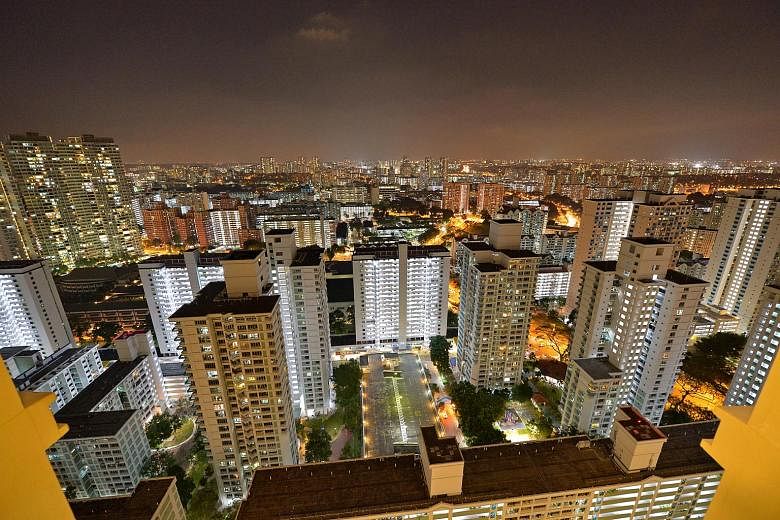SINGAPORE - Could weather be a factor in lift performance? Can potential lift faults be predicted and pre-empted?
A new research programme hopes to tap "smarter" technology to answer these questions and improve the monitoring and analysis of housing estate services.
The four-year study headed by the Housing and Development Board (HDB) hopes to use better sensors and predictive analytics software to better understand the usage patterns of estate-level services such as lifts, water pumps and lighting.
The housing authority - together with Imperial College London and the Agency for Science, Technology and Research's Institute for Infocomm Research - has signed a memorandum of understanding (MOU) to embark on a $5.3 million research programme to study how smart sensing and analytics can enhance services within housing estates.
The MOU was signed at the Urban Sustainability R&D Congress on Thursday (June 29).
Town councils are responsible for maintaining common services in housing estates, but they do not currently collect and analyse usage of estate services at this level of detail.
With the new programme, HDB hopes to share these innovations with town councils to improve residents' lives.
HDB chief executive Cheong Koon Hean said: "The ability to monitor the health of these services in real time can greatly change the way estates are maintained. With data collected from a strong network of sensors and analytic tools, we can carry out analytics more efficiently and accurately.
"Common services in HDB estates can then be better optimised, maintained and managed. The end result is quality living for our residents."
One key area of the research programme is to develop new sensors that can perform basic data processing upon collection, rather than just transmitting information. For instance, such sensors could have the capability of making sense of larger chunks of data collected into 15-minute intervals, rather than simply gathering second-to-second data.
Not only might these sensors be "smarter", there could also be better integration of different types of information, such as a housing block's exposure to the weather. This information could then be analysed together with lift performance data to see if lift performance could be affected by these factors.
Another area of research being explored is in predictive analytics software. With better analysis, potential lift faults could be predicted and pre-empted, by improving the focus of the maintenance regime.
In addition to providing better estate services, HDB also aims to bring residents closer together through data collected on demographics, social trends and lifestyle preferences.
One potential idea is creating an app where residents could earn "credits" through helping one another with tasks such as buying groceries. These "credits" could then be exchanged for discounted goods at neighbourhood shops.


